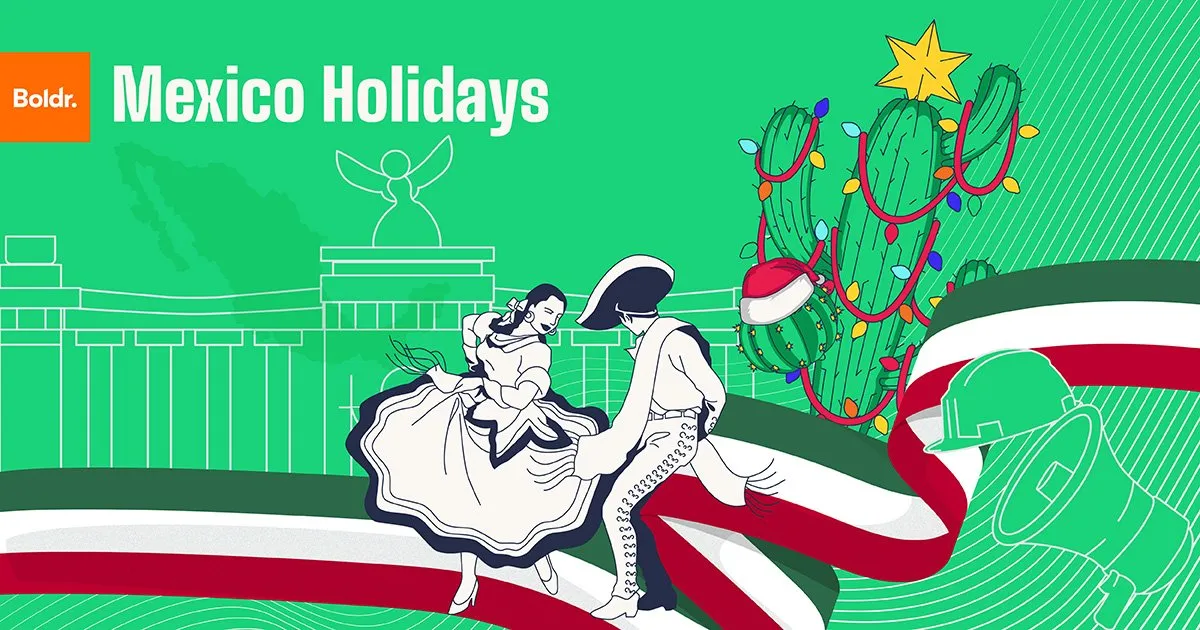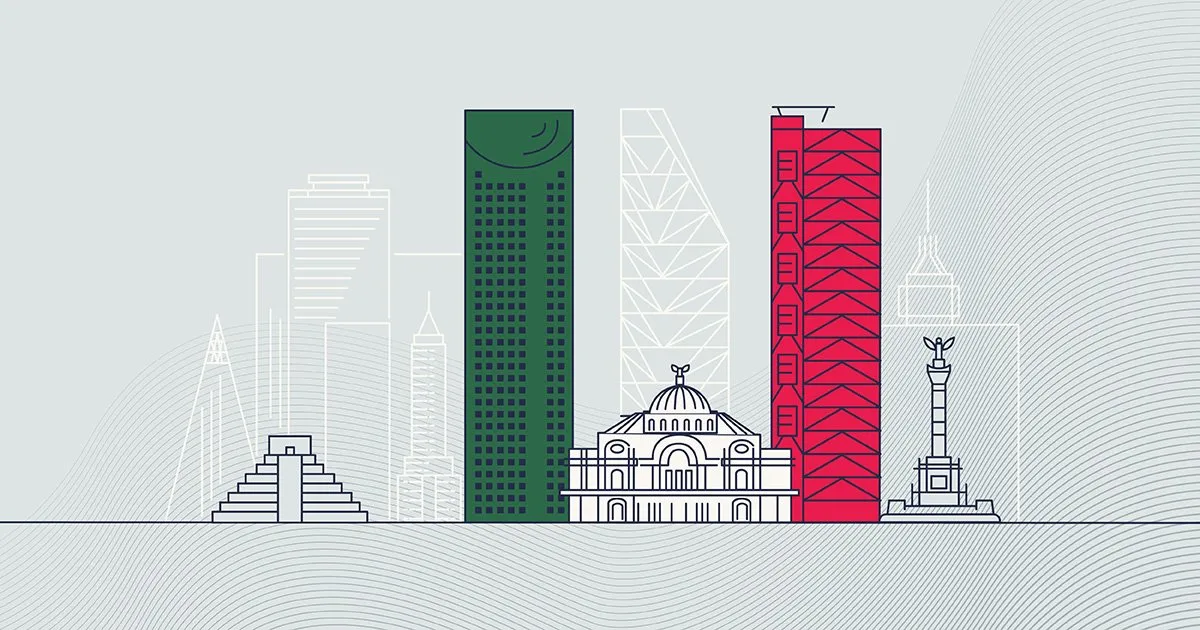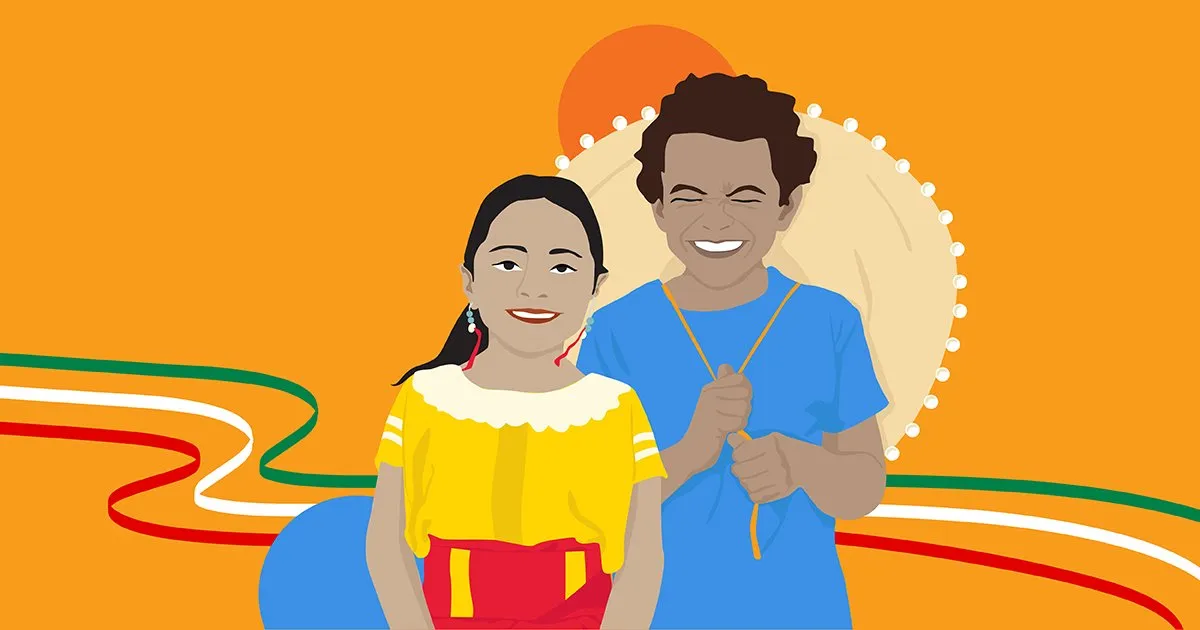Mexico’s oldest traditions carry a nostalgic feeling that resonates with the warmth of its people. Celebrations fill the air with passion, music, flavors, and joy, which beautifully reflect the heart and soul of the Mexican identity. From Independence Day to our Christmas parties (posadas), Mexico’s folklore is present in every corner. At Boldr, we believe in celebrating our team members’ diversity and culture by honoring their festivities. In this article, we break open the holiday piñata to explore Mexico’s most important holidays and highlight their significance.
Constitution Day (February 5): After decades of discrimination, violence, and historical injustices, the Mexican Revolution paved the way for the creation of a document that established the foundations of a democratic republic, the Mexican Constitution. This date is celebrated as it brought about essential reforms in Mexico, including the separation of church and state. This holiday commemorates Mexico’s constitutional heritage and the never-ending pursuit of an equitable society.
Benito Juárez Day (February 21): This day marks the birthday of former president Benito Juárez. He became a historical figure due to his accomplishments during his presidency. He is famous for leading the resistance against the French intervention, reducing the Catholic Church’s influence in state affairs, and defending the rights of indigenous peoples in Mexico. He also took down the Second Mexican Empire, and his efforts modernized the entire country.
Labor Day (May 1): Many changes happened after the new Mexican Constitution was created; one of them was the implementation of labor laws after a long period of inequality, which oversaw the well-being of workers across Mexico. Workers’ movements and social uprisings led the way to a more just labor system, and in 1923, the very first Labor Day celebration was held throughout the country.
Independence Day (September 16): Independence Day is one of the most important dates in the history of Mexico, and it commemorates the Grito de Dolores (Cry of Dolores) in 1810. Miguel Hidalgo, a Catholic priest, spoke out against Spanish oppression and in favor of the independence of Mexico. His speech ignited a fire in the Mexican people, leading to their independence in 1921.
Revolution Day (November 20): This holiday commemorates the uprising against Porfirio Díaz’s dictatorship, which lasted 35 years. Francisco I. Madero, a Mexican revolutionary and political leader, put an end to this oppressive regime by taking on the role of president in 1910. Although Diaz kept Mexico’s economy steady, wealth distribution only benefited the upper class, leading to extreme inequality.
Presidential Takeover (December 1): This is an important and symbolic event that happens every six years, marking the beginning of the elected leader’s mandate and the transition of power between administrations.
Christmas Day (December 25): Christmas in Mexico is very much influenced by Christianity and other cultures, primarily the US (Santa Claus). But some Christmas traditions are unique to Mexican culture, such as posadas (lodgings), piñatas, pastorelas (Christmas nativity plays), and nacimientos (nativity scenes).
New Year’s Day (January 1): Also known as Nochevieja, this is an important holiday for most Mexicans. Families gather for a late-night dinner with their loved ones, play games, and perform special traditions to ensure they leave behind old habits and energies and welcome the new year filled with prosperity and good luck.
When managing global teams, it is crucial to recognize the significance of holidays and cultural celebrations across diverse communities. By acknowledging and incorporating important holidays into the workplace, organizations demonstrate appreciation for their team members.
At Boldr, we honor our teams’ cultural heritage and encourage a healthy work-life balance. This commitment to our teams’ happiness drives us towards our goal of delivering operational excellence for our clients. If you want to leverage the power of a diverse support team in Mexico then let us show you how.
Aitana Rangel Garibay is Boldr’s creative writer and she is passionate about writing purpose-driven stories.


